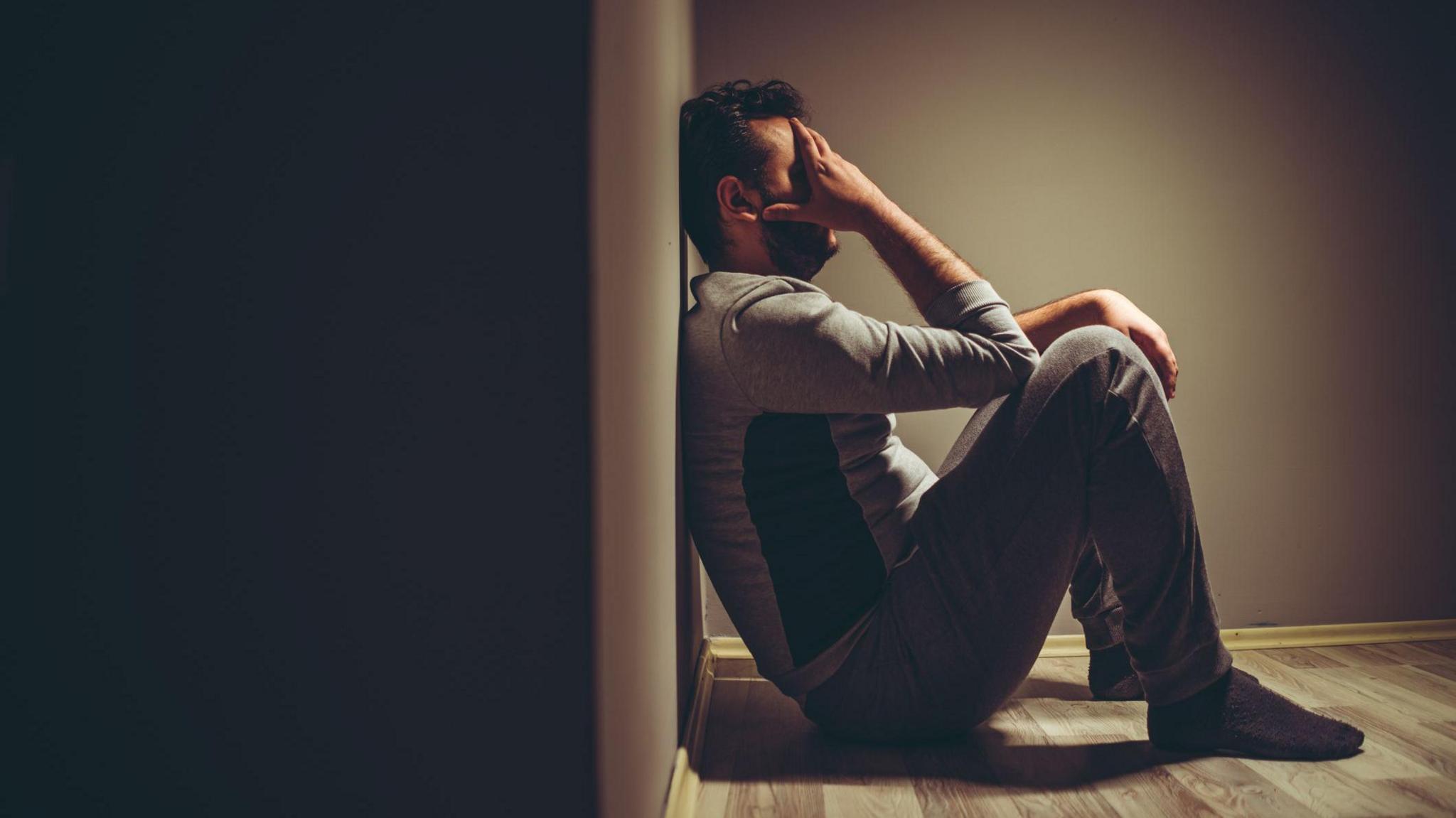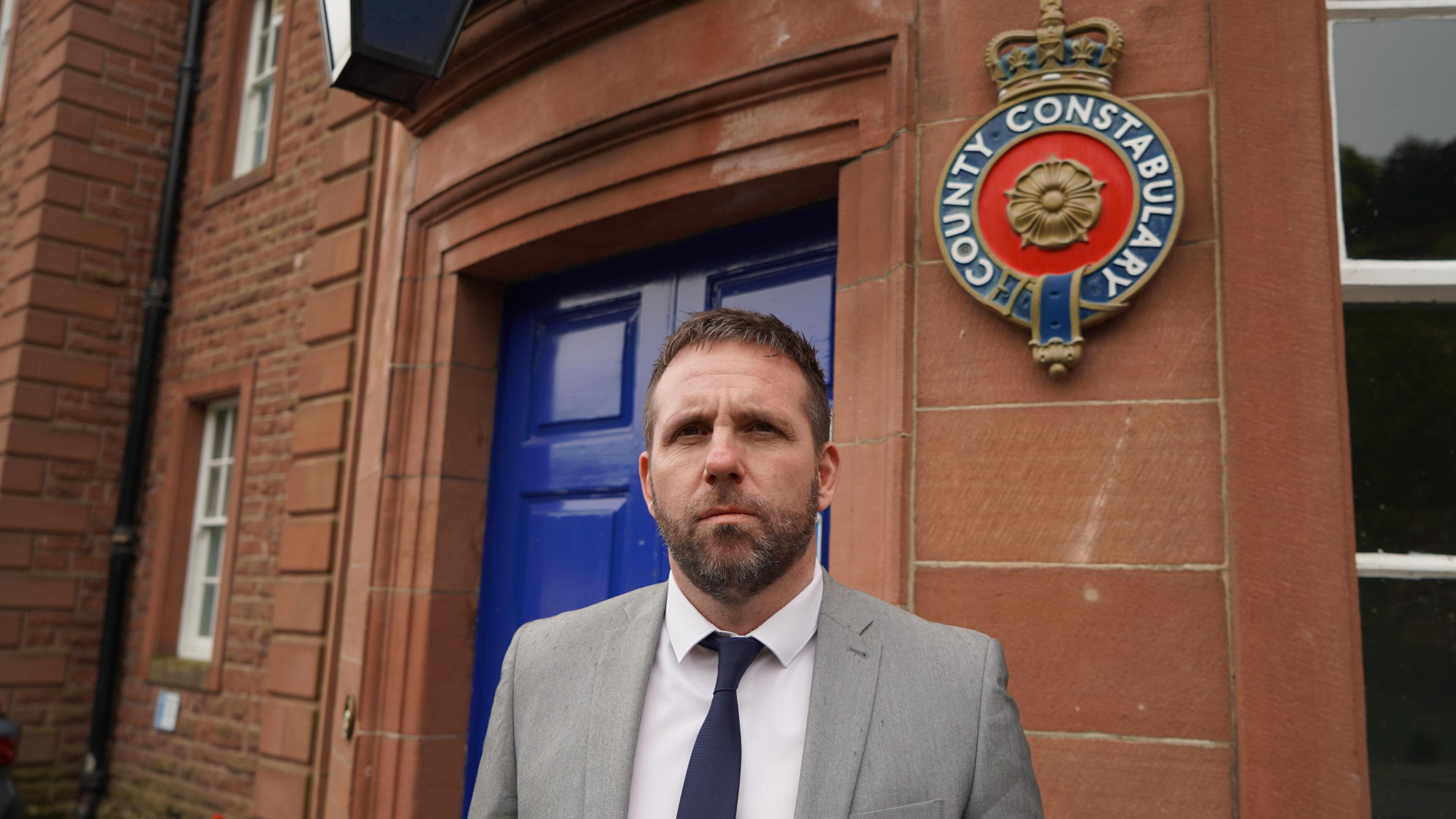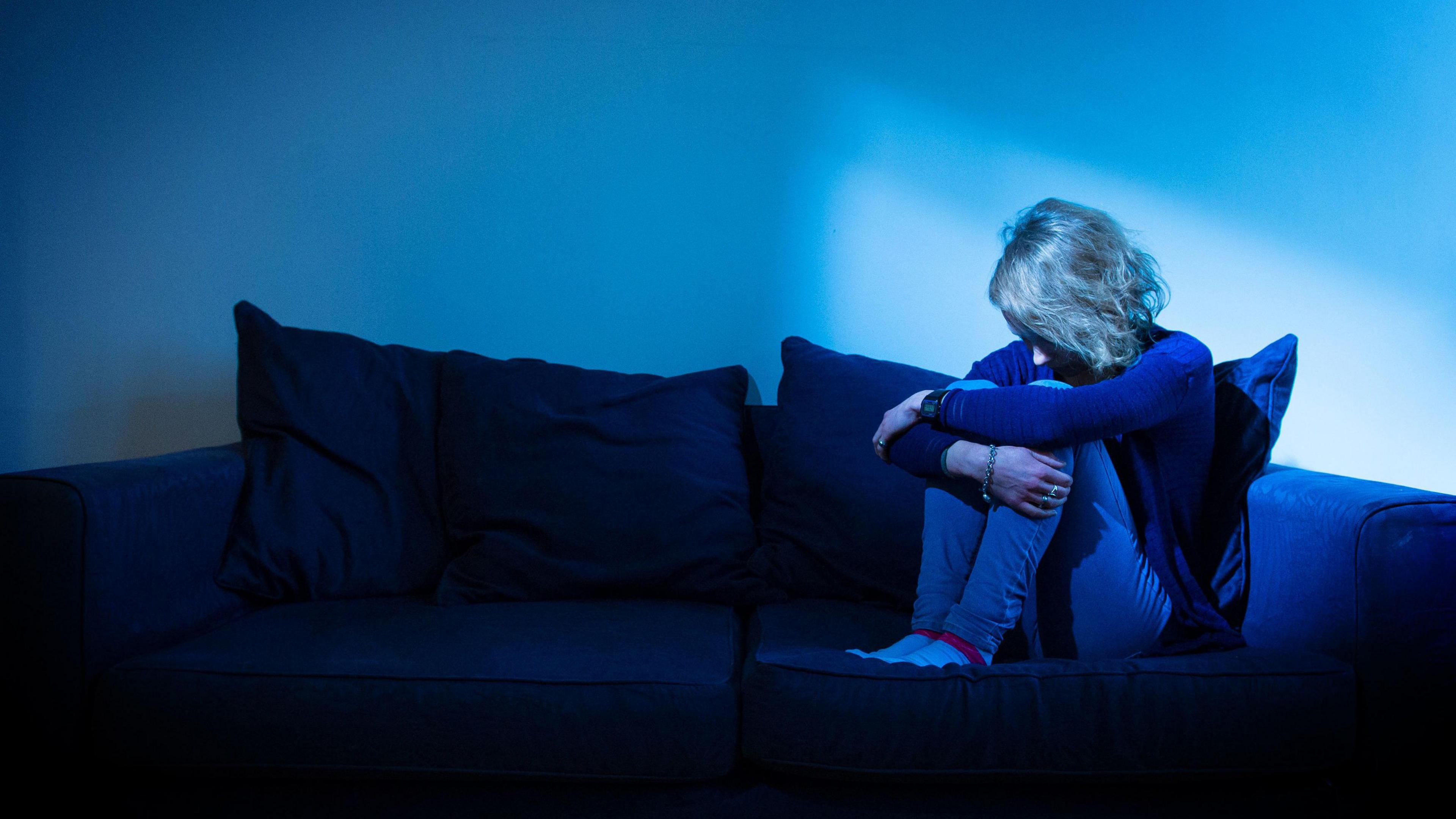'Wife stopped me walking daughter down the aisle'

Alan missed out on the chance to walk his foster daughter down the aisle because of his controlling wife
- Published
The biggest regret of Alan's life was not walking his foster daughter down the aisle on her wedding day and breaking a promise he had made years earlier.
But he was grappling with something so deep-seated in his life that he did not even realise it was happening.
He could not go where he wanted, see who he wanted or even sleep when he was tired.
Alan, from Cumbria, was a victim of coercive control by his wife.
Alan, not his real name, met her online and they married after just nine months.
"She was in a very caring, compassionate job that required a tremendous amount of sensitivity with people - it was one of the things that attracted me to her.
"But that veneer, I think that's how I would describe it now, would be uncovered at home."
'I gave in to it'
Alan said the abuse became apparent when she told him he should not spend time with his friends and they should make new friends as a couple.
At first he thought there was an issue with his female friendships, but when they were invited to a wedding by a male colleague, he realised this was not the case.
"I got an interrogation about it: 'why is this person so significant to you?
"Why does he want to invite us along to this wedding reception," Alan recalled.
His relationship with others also provoked arguments.
In a previous relationship, Alan had fostered a girl, who he kept in touch with.
She asked him to walk her down the aisle on her wedding day, a promise he had made when she was a teenager.
"My abuser said that if I did that, her family would hate me for it."
But when he spoke to his wife's family they said they were "perfectly happy" with it.
He still attended the wedding, but someone else did the honour of escorting the bride.
"I look back and that's the biggest thing that I regret, that I gave into it."
Not always violence
Eventually Alan was able to leave the marriage and find love again.
He has been happily married to his wife for nine years and was able to repair the damage to his relationship with his foster daughter.
During the "tormenting" relationship Alan said his wife tried to make him believe he had sleep apnoea by waking him and telling him he had stopped breathing.
A doctor later told him he did not have the condition and diagnosed him with acute sleep deprivation.
Cumbria Police's head of public protection, Det Supt Matt Scott, said domestic abuse did not always involve violence.
He said: "Abuse takes a whole host of different forms and controlling and coercive behaviour is a particularly serious form of abuse."
He said the control could take over all aspects of a victim's life including how they dressed and spent their money.
"It's a very serious crime, it carries a heavy penalty and it's something we are very serious about addressing."

Det Supt Matt Scott said not all domestic abuse involved violence
He said victims often do not realise they are being controlled.
"This can often start off with what would appear to be caring behaviour.
"Saying: 'I'm just looking after you, I just want you to be safe, I just want to know where you are'.
"After that the behaviour gradually becomes more extreme."
He said anyone who believes they are a victim will be take seriously by police.
Signs from start
Emily, not her real name, managed to leave an abusive relationship 10 years ago.
She also met her abuser online and believes the signs of abuse were there from the start.
"He would very much want to be the person who would decide if we were going to see each other again, where it would be and what we would do."
She said she quickly became isolated from friends and family.

Emily said she still asks herself how it could have happened to her
She said: "I wasn't able to make time for them, because the way that he devised our schedule meant I couldn't find time to spend with them."
During the 18-month relationship Emily said she was deeply unhappy and lost a lot of weight.
She eventually ended the relationship but her abuser continued to contact her.
In the end she was forced to move.
"I'm outgoing, independent, I have a great job that I love which shows this can happen to anyone," she said.
"I still spend quite a lot of time thinking 'how did I let this happen to me'."
'Completely broken'
Kathryn Mann, a senior support worker at charity Women's Aid, said victims wondering how they had let the abuse happen was common.
"We hear people coming to us saying: 'I was so strong once upon a time and now I don't feel like myself, I feel completely broken'."
She said that because the abuse is constant, victims end up feeling exhausted.
"The perpetrator will constantly be telling you that you're the one in the wrong, you're to blame for the abuse - you're constantly questioning everything you're doing and saying, trying not to upset the other person and it's just exhausting."
She said it was difficult to calculate the number of victims of domestic abuse and coercive control because many cases were not reported.
Last year the charity ran 15,000 live chats through its website for people wanting advice.
Ms Mann said the charity was often the first port of call for women wanting practical help.
She added that this could range from listening to experiences to offering legal advice and helping victims find a refuge.
"We're not there to tell anyone what to do, we can just offer some options, we're a confidential service and it's completely anonymous."
She added: "It's always worth taking that step and reaching out for support and getting help if you need it."
If you have been affected by any of these issues, you can find support through the BBC Actionline website.
Follow BBC Cumbria on X (formerly Twitter), external, Facebook, external and Instagram, external. Send your story ideas to northeastandcumbria@bbc.co.uk.
Related topics
Related stories
- Published12 July 2024

- Published17 June 2024

- Published17 May 2024
